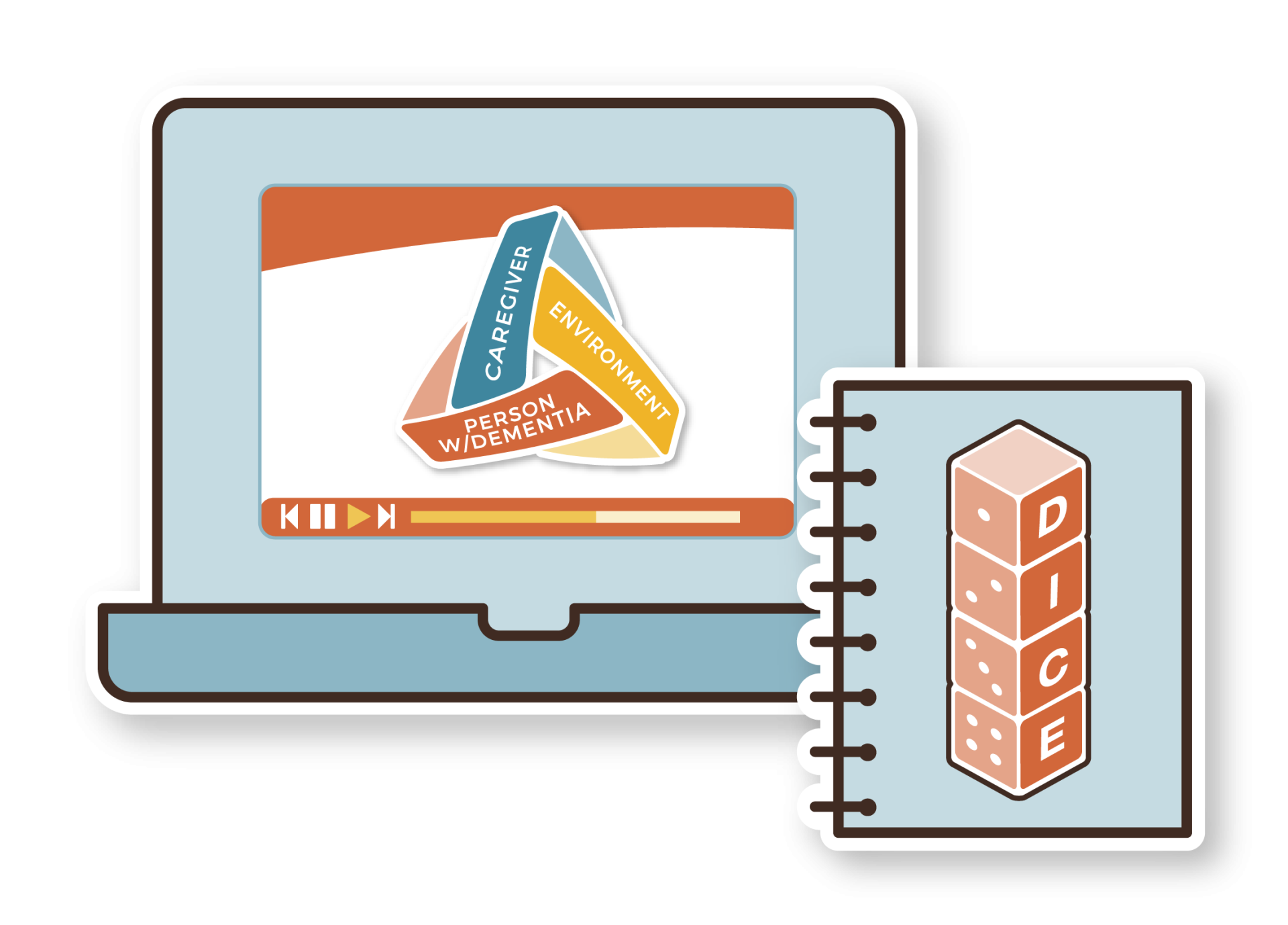
Get the DICE training package!
DICE Approach™ training videos!
Join Dr. Helen C. Kales as she provides you with the background, education and caregiving plan as prescribed by The DICE Approach™. She and her team have trained hundreds of family and facility caregivers who report great results. These videos not only teach you The DICE Approach™, they are carefully crafted with you, the caregiver, in mind to help ease the stress of your situation and that of your patient. In addition to learning how to Describe, Investigate, Create and Evaluate BPSD behaviors, you'll be able to test your skills and knowledge with e-sim videos reflecting actual case studies Dr. Kales has experienced. You'll also learn about the DICE Triad and how it relates to The Dice Approach™. The DICE Triad focuses on three critical elements:
- Caregiver: You will learn how you as a caregiver can adopt an approach and style using The DICE Approach™ to provide the best support for your patient, and care for yourself at the same time.
- Patient With Dementia: You'll learn how to better understand and respond to the signals and communication your patient is sharing, and more easily respond to their behavior.
- Environment: You'll learn how to assess and improve the environment of your caregiving location, and how little things can make a big difference
The Dice Approach™ Manual: Internationally renowned and a must-have for any caregiver for quick reference
There were an estimated 44 million people with Alzheimer’s or some form of Dementia worldwide and as of 2016 and about 6 million in the U.S. alone. It is estimated that one to four family members act as caregivers for each individual with Alzheimer’s disease. In 2016, 15.9 million family and friends provided 18.2 billion hours of unpaid assistance to those with Alzheimer’s disease and other forms of dementia in the U.S., a contribution to the nation valued at $230.1 billion. Those numbers will increase rapidly as baby boomers age. Since 2009, The Program for Positive Aging has provided evidence-based behavioral training for caregivers internationally proven by several grant-based studies of home caregivers and facility caregivers. With updates based on feedback from these studies the revised The DICE Approach™ manual is the go-to reference guide. Its 124 color pages provide expert training in The DICE Approach™ (Describe, Investigate, Create and Evaluate) and provides immediately accessible information caregivers depend upon. The DICE Approach™ manual will not only tell you about commonly used medications and how to build and interact with your support team, it provides deep information about how caregivers can care for themselves during the chaos and stress of caring for others.
This is the must-have guidebook for anyone who cares for, or knows someone who cares for, patients with Alzheimer’s or Dementia is available separately here: https://bit.ly/4sfhbiB
DisclaimerThe DICE Approach™ is an educational and training program and is not intended as medical advice or replace your physician’s role or advice in caregiving.